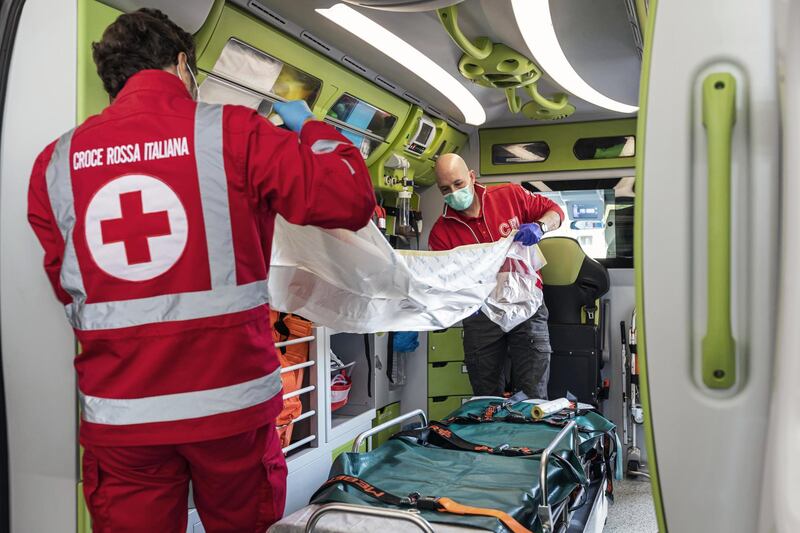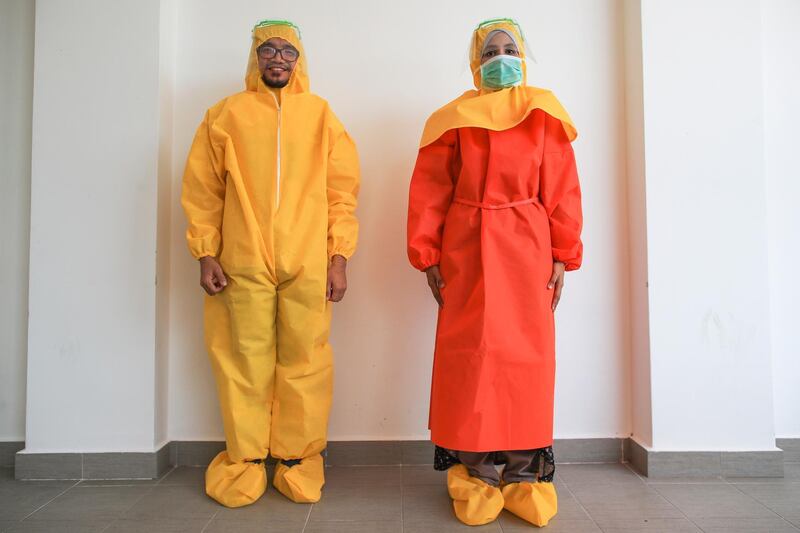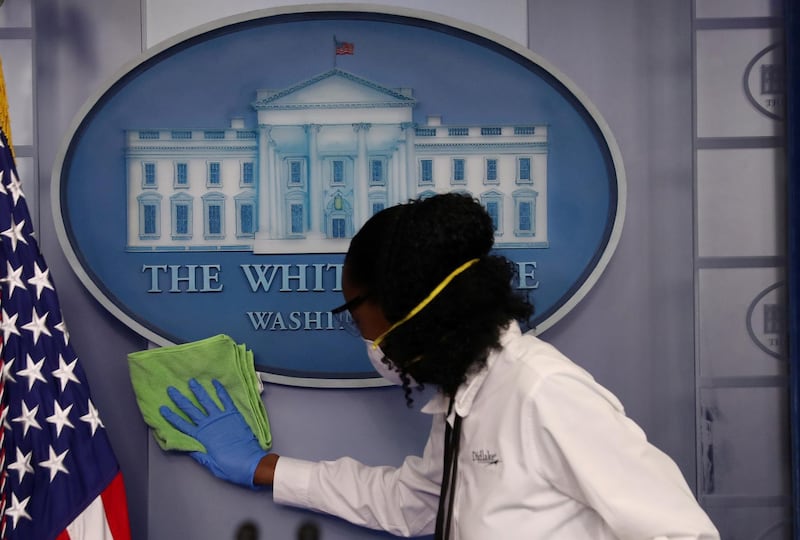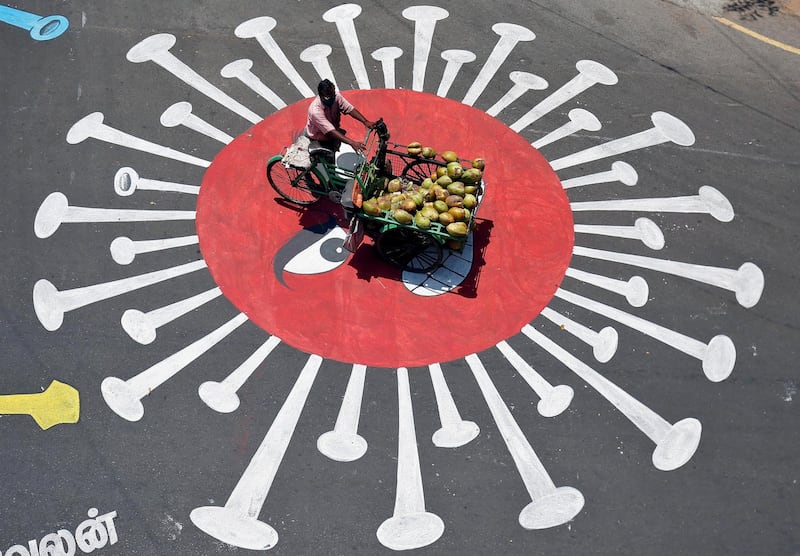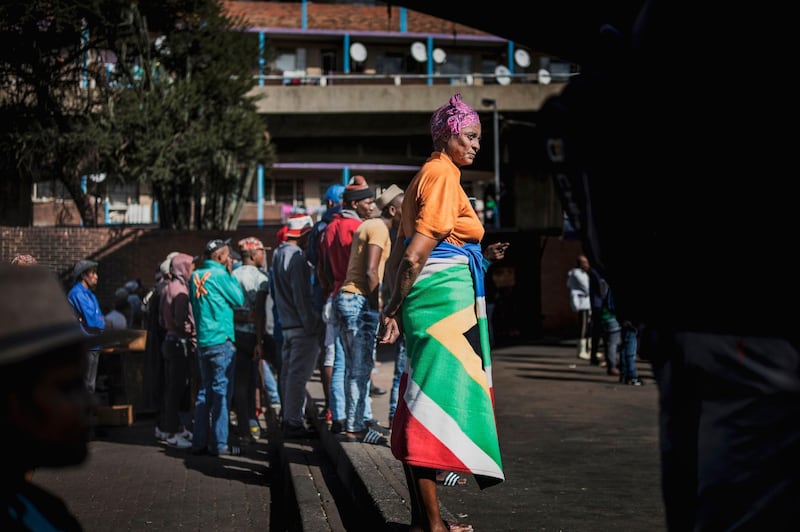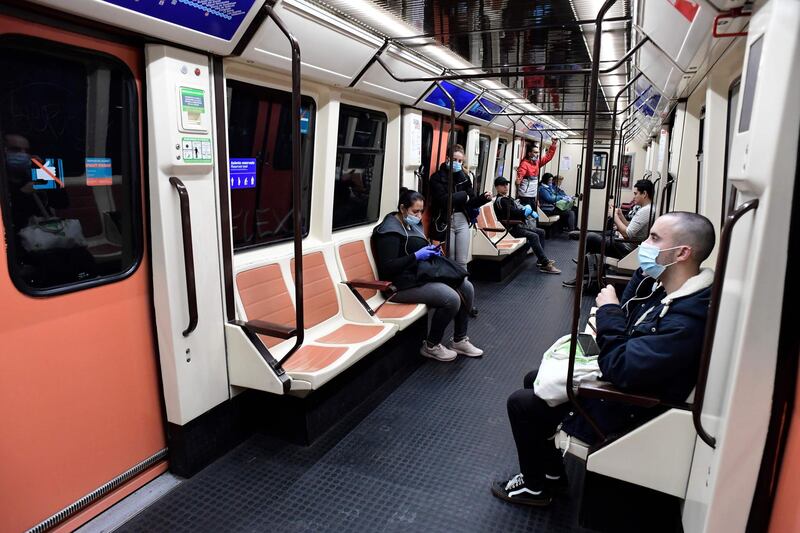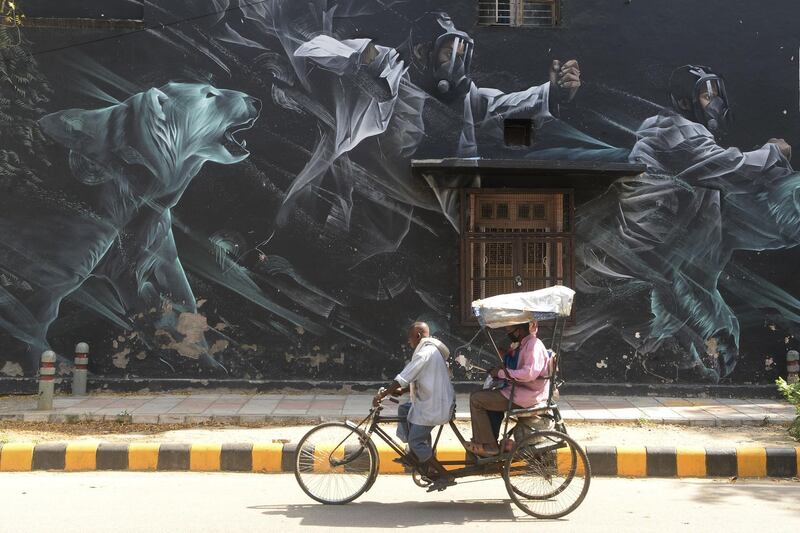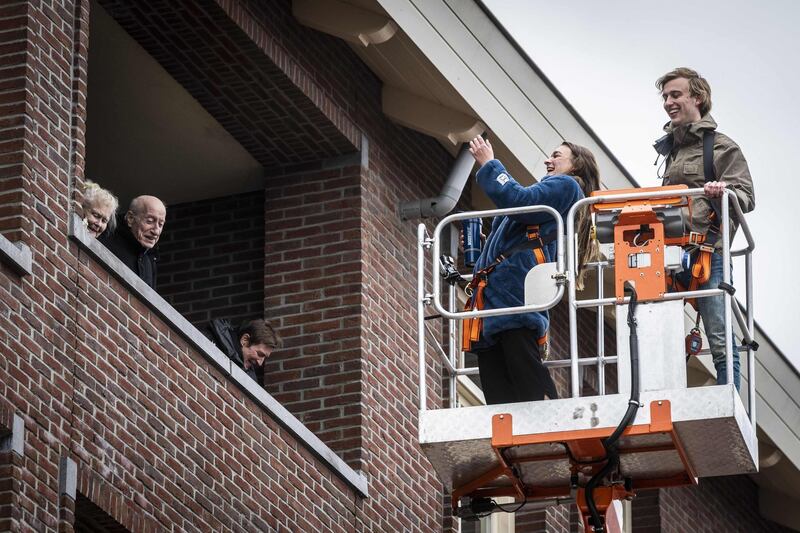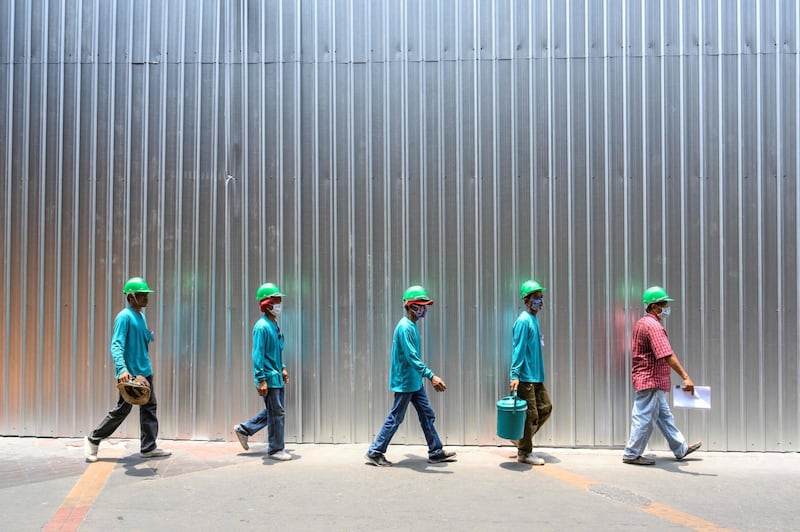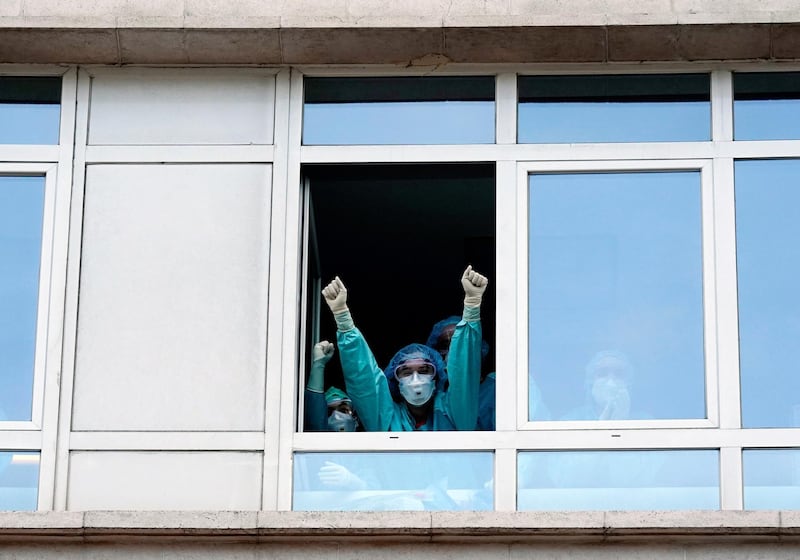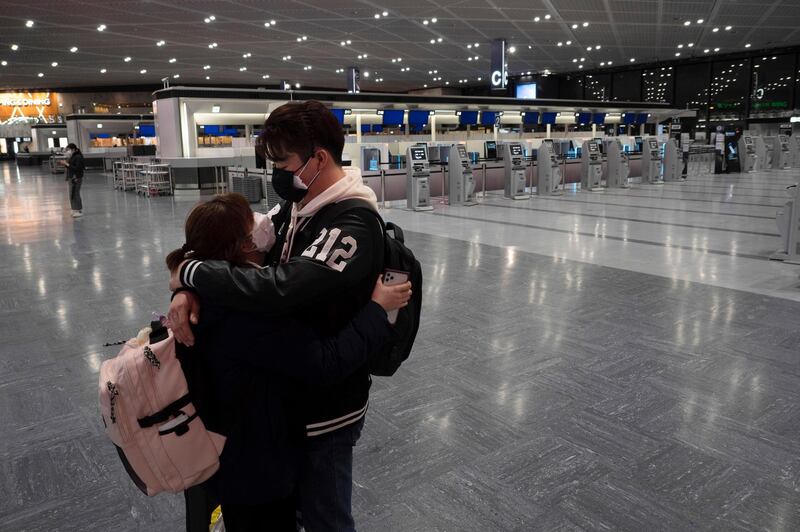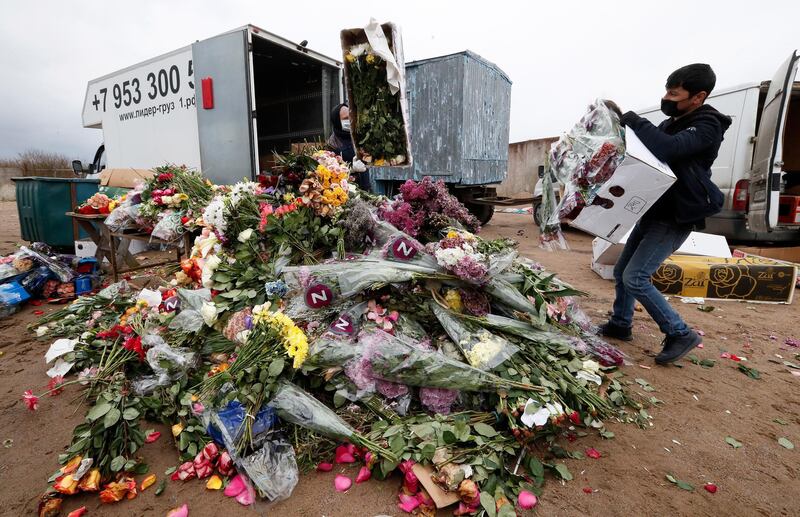Each afternoon from lockdown in her family home in Erba in Northern Italy, Ludovica Iaccino hears a public service announcement played on repeat from a car roaming her neighbourhood.
The female voice crackling over the loudspeaker urges inhabitants to remain indoors and to venture out only for essential errands. Apart from this, the only other noise is the sirens.
"It is so unbelievably quiet outside," she tells The National.
The silence has reigned since lockdown started at the end of February and to Ms Iaccino the normality of the past is remote and the prospect of returning to a partial reopening of local shops and businesses is fraught.
“I think people are just worried about what is going to happen next, what is going happen when we can move around again. It is a massive worry still. It doesn't make me feel good,” she explains.
Less than 40 kilometres away in Bergamo, Francesca, not her real name, a doctor in one of the city’s overwhelmed hospitals, explains in the weeks since the coronavirus took hold the previously unthinkable had now become routine.
“We have been catapulted into a new world, the world of a virus which has an aggressive pathology that is still partly unknown to us,” she explains.
With 10,901 deaths from the disease, Italy’s Lombardy region remains the area hardest hit by the coronavirus in the world. It will be surpassed in the coming days by New York state as Italy as a whole continues to move past the peak of the virus.
The country crossed over the threshold of another grim milestone on Monday with the announcement that its death toll from Covid-19 had topped 20,000. More positively, however, its number of critically ill patients fell for the tenth successive day.
With the peak of the virus appearing to have passed somewhere around April 3, the lockdown is being partially lifted in some areas. Books shops, stationary stores and shops selling baby clothes and supplies were allowed to open nationwide on Tuesday, provided they maintained the same social-distancing and sanitary measures required in supermarkets.
There will be no let-up in the measures imposed in Lombardy or in neighbouring Piedmont. Elsewhere the loosening of restrictions will be sporadic. Lazio in central Italy has postponed re-opening for another week to allow stores to put in place sanitary measures. Veneto has allowed them to open two days a week under a strategy dubbed "lockdown light".
Few think a widescale re-opening is possible for weeks to come.
“Things are only getting better because of these [lockdown] measures. It makes me think we're going to have to be in this situation for a longer period,” Ms Iaccino observed.
For Francesca in Bergamo, the situation still remains dangerous even if it is improving by increments. “It's like working against an invisible enemy, which strikes suddenly, some patients are stable for days and then it hits,” she says.
“For some weeks now, however, there has been a greater collaboration between medical centres. Some patients are transferred to wards and intensive care in other hospitals to free up beds.”
Some of the necessary efficiencies that have been developed to deal with the outbreak are macabre. The doctor explains her hospital’s morgue which had to be expanded to deal with the unprecedented number of dead is no longer overwhelmed. The Italian army has moved in to deal with the bodies.
With the trauma of the crisis continuing in northern Italy, fears of a second spike in fatalities is real. Internal documents circulated by the European Commission have urged for a only a gradual relaxing of lockdowns in EU nations. The relaxing of measures, the commission has said, will inevitably lead to more covid-19 cases.
The World Health Organisation has similarly warned that a lifting restrictions too early could lead to a resurgence of the virus.
Spain has allowed some businesses, particularly in the manufacturing and construction sectors to reopen while Denmark has reopened its schools to younger children.
At the same time, however, European nations like France, Britain and Germany have indicated while they have slowed the spread of the virus they have not beaten it and, as such, their nationwide lockdowns will remain in place.
In Italy, leaders like prime minister Giuseppe Conte have walked a difficult line reassuring the public that the worst of the public emergency is over but that care is needed.
Italians sing from balconies amidst Covid-19 lockdown
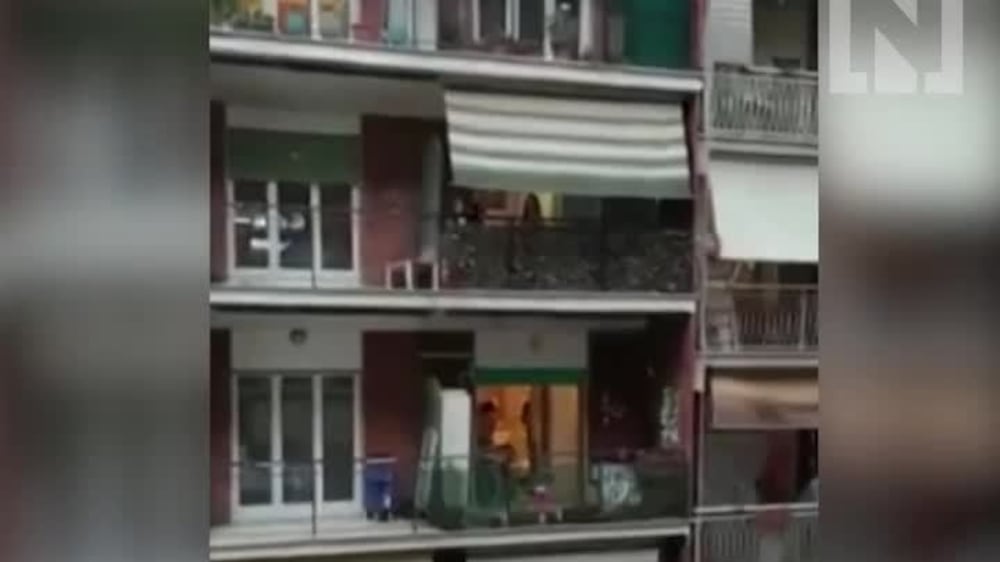
“Politicians are being very cautious. Yes, we are overcoming this problem but it does not mean it is over,” Ms Iaccino says.
“When the lockdown ends, there is a phase coming where we will have to go back to our lives but we will have to live with this virus essentially. I take it one day at a time,” she adds.
Francesca says life for her will never be the same after the crisis in the country’s hospitals. “We will not return to what we thought was normal. Everything will be different,” she explains. Even if a vaccine is found, the present situation will continue for several months she adds. “Having herd immunity among the population will take time."
